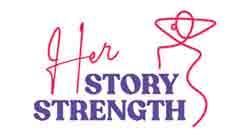Manager – Product and Network | Shipping & Logistics Specialist | Advocate for Women in Maritime
 With over three decades of experience in the shipping and logistics industry, Ishani Caldera has charted an inspiring course through a traditionally male-dominated field. From her early days at Evergreen Shipping to leading equipment control and container maintenance at Ocean Network Express (ONE), Ishani has constantly pushed boundaries, balancing operational rigor with innovation and an unwavering belief in empowering women in maritime.
With over three decades of experience in the shipping and logistics industry, Ishani Caldera has charted an inspiring course through a traditionally male-dominated field. From her early days at Evergreen Shipping to leading equipment control and container maintenance at Ocean Network Express (ONE), Ishani has constantly pushed boundaries, balancing operational rigor with innovation and an unwavering belief in empowering women in maritime.
As a single mother, industry leader, and active member of global networks like WISTA and Women in Management (WIM), Ishani’s journey is one of grit, growth, and purpose. In this interview, she reflects on her career milestones, the evolution of the shipping industry, the importance of female representation, and what continues to fuel her ambitions.
Q With over 30 years in the shipping and logistics industry, how did your journey begin, and what drew you to this field initially?
My career began at Evergreen Shipping, one of the world’s largest shipping lines. That’s where I first learned the basics of the industry. I started in shipping accounts, but I soon realized sitting behind numbers wasn’t for me; I wanted to be in the field. I got the chance to join Mitsui OSK Lines as an Executive in Transshipment Operations. At the time, there were very few women in operational roles. That experience made me even more determined to carve my space in this male-dominated field. Later, I transitioned into equipment control, handling containers, inventory, repairs, and maintenance. It was a steep learning curve, but it gave me a broader view of how logistics works from the ground up. The biggest milestone in my career came in 2018 when I joined Ocean Network Express (ONE), a newly formed global shipping giant. Today, I head the Equipment Control and Repairs Department. It’s been a tough climb, especially being a woman in this space, but I’ve never backed down from a challenge. I’ve always told myself, “Yes, I can do this”- and that mindset has carried me forward.
In shipping and logistics, tradition represents decades of refined processes, safety protocols, and regulatory compliance. Innovation brings efficiency, technology, and competitive edge. I don’t see them as opposing forces; they complement each other
Q You’ve managed product development and global distribution networks. What are the key trends shaping the future of global logistics today?
The industry is undergoing rapid transformation. Digitalization and emerging technologies are leading the way. There’s a growing emphasis on sustainability, customer satisfaction, and speed. Clients expect faster, more reliable deliveries, and greener ones too. Green logistics, regulatory compliance, and innovative digital tools are no longer optional; they’re essential to staying competitive in a global market.
Q Shipping is all about precision and problem-solving. Can you share a defining moment in your career when you faced a major operational challenge?
There was a time when container inventory levels spiked unexpectedly, and Colombo Port was suddenly omitted from several shipping routes, causing space constraints. At the same time, the cost of container cleaning and repairs kept rising, with repair material prices increasing due to global economic pressures and sanctions. Managing costs while maintaining efficiency and service quality was extremely challenging. But those are the moments that test you and ultimately define your growth.
Q You’ve held leadership roles in both operations and logistics innovation. How do you balance tradition and innovation in such a regulated industry?
In shipping and logistics, tradition represents decades of refined processes, safety protocols, and regulatory compliance. Innovation brings efficiency, technology, and competitive edge. I don’t see them as opposing forces; they complement each other. Success lies in respecting foundational principles while staying open to continuous learning and technological advancement. Balancing both ensures sustainable growth and operational excellence.
Q You’re an active member of WISTA and Women in Management. How important is female representation in the maritime industry, and how has it evolved?
Representation is incredibly important. When I started out, there were hardly any women in shipping operations. Being part of WIM and WISTA has given me access to invaluable networks, mentors, and learning opportunities. These platforms are empowering women and creating visibility where it matters. Over the years, I’ve seen more women step into operational and leadership roles. But there’s still a long way to go.
Q What barriers do women continue to face in shipping and logistics, and what changes are still needed to ensure inclusion and leadership opportunities?
The biggest barriers are cultural, many still see this as a man’s industry. There’s also a lack of visible role models, challenges around work-life balance, and limited access to leadership pipelines. To change this, companies need to foster inclusive cultures, provide mentorship programs, and encourage flexible working environments. Representation at decision-making levels must become a priority.

Q Your expertise spans market analysis to customer satisfaction. What’s your approach to developing products that meet both market and business needs?
My approach is built on three pillars: deep understanding of market dynamics, strategic alignment with business goals, and ongoing validation.
I listen to customer feedback, monitor trends closely, and ensure product development aligns with operational feasibility and long-term value. It’s a continuous process that requires adaptability and a clear vision.
Q As someone active on international committees, how do you view cross-border collaboration’s role in building a resilient global logistics system?
Cross-border collaboration is not just beneficial; it’s absolutely essential. My involvement in international committees has taught me that no single country or company can build resilience alone. Shared knowledge, harmonized policies, and global cooperation are key to navigating disruptions, especially in times of crisis like pandemics or geopolitical tensions.
My career began at Evergreen Shipping, one of the world’s largest shipping lines. That’s where I first learned the basics of the industry. I started in shipping accounts, but I soon realized sitting behind numbers wasn’t for me; I wanted to be in the field
Q As a single mother and a high-performing professional, how have you managed to balance work and life? What mindset keeps you resilient?
It hasn’t been easy, but I’ve learned the importance of planning and prioritizing. Every week, I map out my responsibilities, both at home and at work, and allocate time based on what’s most important. I stay resilient by focusing on the bigger picture and reminding myself of why I started. Flexibility, discipline, and the ability to say “yes, I can” have been crucial.
Q After three decades in this industry, what continues to inspire you, and what’s next for Ishani Caldera?
My biggest inspiration is the idea of empowering others, especially women. I want to introduce more women to this industry and help build their confidence to thrive in it. I’ve also been thinking about taking the entrepreneurial route, perhaps launching something that bridges logistics with female leadership development. There’s still so much more to do, and I’m just getting started.
RAPID FIRE ROUND
- First thing you do every morning. Go to the Temple.
- Describe yourself in three words. Strong. Professional. Lovable.
- Your all-time favorite shipping port? Singapore
- One leadership mantra you live by. Trust!
- Coffee or Tea? Coffee
- One thing people don’t know about you. I can do anything!
- A woman leader who inspires you? Shehara De Silva.
- Your proudest title: Manager or Mother? Mother.
- Work-from-home or office buzz. Office buzz!












